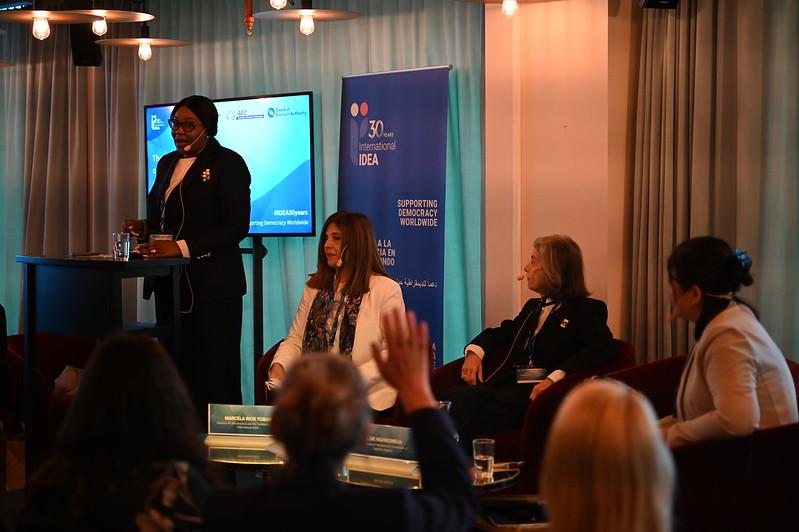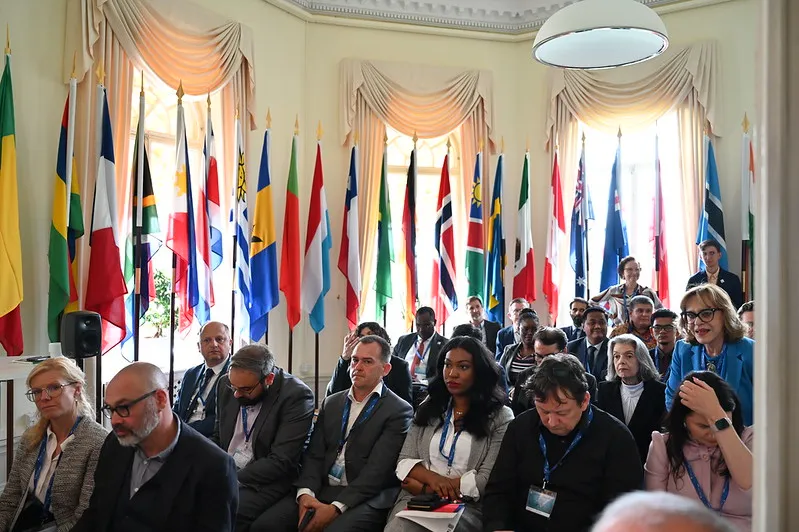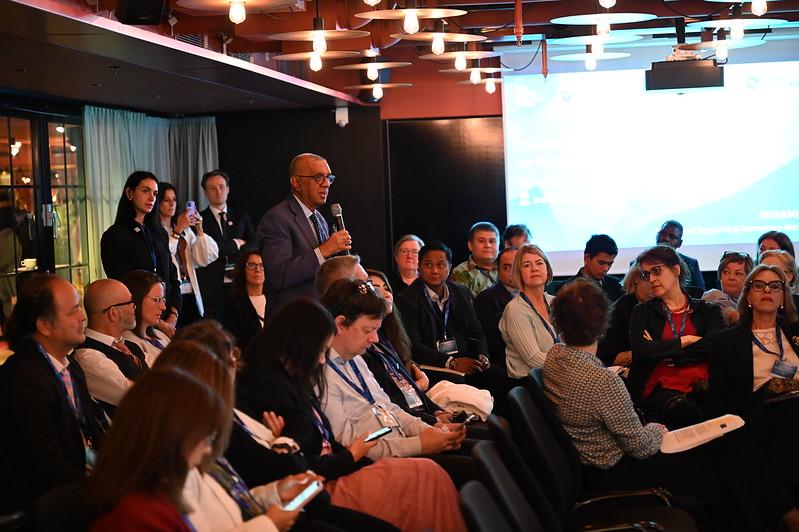
International IDEA convenes global election leaders in Stockholm

The conference brought together over 90 senior electoral management bodies (EMB) representatives from 39 countries (primarily the member states of International IDEA) around the themes of EMB leadership, regulatory innovation and transnational cooperation.
The anniversary week kicked off with the seventh instalment of the Stockholm Series of Public Lectures on Climate Change and Democracy, followed by a moderated discussion. Under the title ‘Voting in Times of Climate Change: What Extreme Weather Events Mean for Electoral Management’, Professor Sarah Birch presented the impacts of climate change-related hazards on EMBs and their planning procedures. Events like storms, floods or wildfires increasingly affect elections and can impact the electoral processes in different ways, such as hindering voter registration, campaigning and or even accessing polls on election day, which can in turn lead to lower levels of participation and trust in the electoral system. While the effects of extreme weather can confound election operations, they can also allow officials to stress-test their crisis response procedures and public communication skills.

On the afternoon of Tuesday, June 10th, the Stockholm Conference on Electoral Integrity began with a dedicated meeting of the EMBs of International IDEA Member States. It was officially opened with welcoming remarks by International IDEA’s Secretary-General, Kevin Casas-Zamora and by Sweden’s State Secretary of Foreign Affairs Dag Hartelius. This was followed by opening remarks by the respective heads of the Election Commission of India, Mexico’s Instituto Nacional Electoral, and the Electoral Commission of South Africa. In their speech, the speakers reflected on the unique histories and configurations of their electoral systems, their experiences as countries holding elections during the 2024 Election Supercycle year and thoughts on key challenges in electoral management.
Substantive discussions on June 11th provided an opportunity for high-level, cross-sectoral conversations about the latest developments in election management. The sessions focused on subjects such as designing and enforcing reforms and regulations in complex, fast-moving spaces like elections, mechanisms to safeguard EMBs and their workforce, as well the kind of support that transnational cooperation can provide to election officials. The special focus on EMB independence and EMB leadership in reform culminated in a Stockholm Consensus on Electoral Integrity.
The following days included a range of dedicated special sessions hosted by the Swedish Election Authority, the Swedish Ministry of Foreign Affairs, and the Swedish Parliament, as well as specialised side meetings on the ACE Electoral Knowledge Network and a Masterclass on electoral risk management.

International IDEA’s 30th anniversary week provided an opportunity not only to make use of the organisation’s convening power and reflect on the history of the field of electoral support, but also to look forward to identify shared challenges and highlight innovations being implemented by EMBs. The high-level exchanges that took place at International IDEA and the external venues will lay the foundation for further, in-depth discussions among attendees and their colleagues, fostering further technical exchanges among EMBs.
An in-depth summary of the event can be found here.




